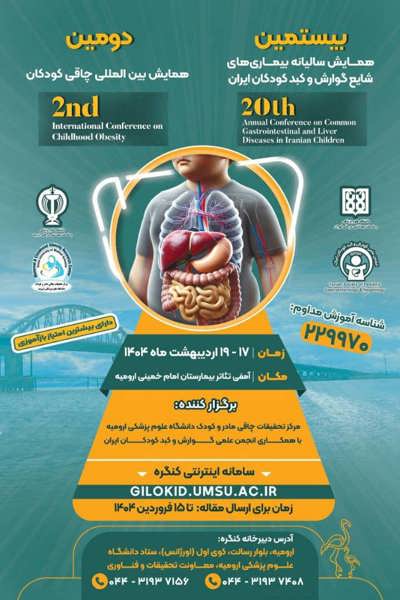0% Complete

صفحه اصلی
/
بیستمین همایش سالیانه بیماری های شایع گوارش و کبد کودکان ایران و دومین همایش بین المللی چاقی کودکان
نویسندگان :
کلمات کلیدی :
چکیده :
لیست مقالات بایگانی شده
Sadra Khodaei Alamdari - Aylin Ebrahimpour - Negar Moosaee Farahani
Ladan Soltanzadeh - Ali Mirzaee AghGonbad - Shanli Mirzaee
Vali Musazadeh - Amir Hossein Faghfouri - Farzad Shidfar
Aydin Mahmoud Alilou - Roghayeh Faraji Akhijahani - Parinaz Mahmoud Alilou - Pardis Pour Ali - Pouria Shieeh - Alisan Khodayarlo - Sina Manouchehrnia - Sana Nasirpour - Meysam Najafi
Ghazal Akhavan Masoumi - Yousef Mohammadpour - Fatemeh Soltani - Vahid Hoseinpour - Rasul Bidel Nikoo - Saeideh Rahimi
Bahman Mansouri Motlagh - Belal Pashaei - ُShahsanam Gheibi
Mojtaba Keikha - Roya Kelishadi
Amirhossein Hosseini - Alireza Khalaj - Maryam Barzin - Mina Alibeik - Soheil Omid
Belal Pashaei - Bahman Mansouri Motlagh - Shahsanam Gheibi

